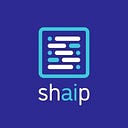The global natural language processing market is slated to increase from $1.8 billion in 2021 to $4.3 billion in 2026, growing at a CAGR of 19.0% during the period.
As the digitization of healthcare grows significantly, advanced technologies like NLP are helping the industry extract useful insights from the massive amounts of unstructured clinical data to uncover patterns and develop appropriate responses.
With more access to the latest technologies, the healthcare industry can develop customized treatment plans, provide accurate diagnostic solutions and optimize patient care experience.
Let’s look at the role of NLP in healthcare and its top use cases.
Role of NLP in Healthcare
The healthcare industry produces tons of unstructured clinical and patient data. It becomes challenging to manually collate and correlate all this information into a structured format. Utilizing these trillions of data is important as it can help improve healthcare delivery, automate administrative systems, reduce patient time, and improve care with real-time data.
Natural language processing and artificial intelligence help collect unstructured medical data from human speech, reports, documents, and databases to extract meaningful patterns. With these patterns, you can extend better diagnosis, treatment, and support to patients.
There are two primary ways in which NLP enhances healthcare delivery. One is extracting information from a physician’s speech by comprehending its meaning.
The other is mapping out the critical information from databases and documents to help doctors and practitioners make informed decisions.
Different Use Cases of Natural Language Processing in Healthcare
There are many use cases of healthcare NLP. Here are the top 4 use cases
Clinical Documentation
Maintaining Electronic Health Records is time-consuming and laborious, and clinicians spend considerable time maintaining these records. With NLP, clinicians and doctors can get more quality time on their hands to invest in value-building tasks. Doctors can take down patient notes using speech-to-text, which makes data entry easier.
Also, EHRs are unstructured, so NLP can efficiently and automatically put together several clinical notes. The NLP system can easily pull together disparate clinical and diagnostic records, documents, and physician letters and upload them as a combined file in the patient’s EHR.
Help Deliver Enhanced value-based Patient Care.
A typical patient record contains tons of healthcare data, but unstructured data and patient feedback don’t usually become a part of the clinical records. Yet, the feedback contains critical insights into the patient experience that helps in decision-making and streamlining the patient experience.
NLP makes data mining in healthcare possible, and when doctors have access to massive amounts of patient data, it helps deliver thorough non-subjective healthcare. NLP also shows great promise in identifying gaps in performance or care so that corrective action and reporting to regulators are not ambiguous.
Since patient health care continues after the patient leaves the clinical setting, NLP helps analyze post-treatment feedback, reviews, and social media posts to draw useful insights. These insights help care providers identify problem areas that affect patient experience and develop methods for improving patient health.
Enhanced predictive analysis
Another interesting use case of NLP is predictive and root cause analysis using the data deposits. It is possible to detect patterns and subsets of groups likely to have a propensity to certain health conditions. When a delayed diagnosis of conditions can have devastating complications, NLP can help in early diagnosis.
NLP tools to aid in clinical trial matching
With the help of natural language processing, doctors can quickly review large quantities of unstructured clinical data to recognize eligible candidates suitable for clinical trials. It is not only helpful in the research and development of medications but also in a better understanding of conditions. It also helps patients get access to experimental care that has the potential to improve patient health.
How Can Healthcare Organizations Leverage NLP?
Using NLP technology, healthcare organizations can transform how delivery and care is delivered to patients.
- Using NLP, organizations can ensure critical healthcare information is delivered to the patients and caretakers at the right time.
- Healthcare information is usually riddled with complex terminology, making it difficult for ordinary patients to understand the significance of their health issues or treatment. When NLP and machine learning technologies are used in healthcare delivery, patients’ awareness of their health issues is increased.
- Since more and more doctors and technicians are using NLP as an alternative to handwriting notes, EHRs can be more patient-centric and understandable.
- NLP makes it possible to detect diagnosis, treatment, and delivery errors. It is easier to measure physician performance, patient recovery, or reaction to treatment.
- NLP tools help healthcare industries identify the critical care needs of patients. Since physicians have access to large datasets, with the help of NLP, they can identify patterns and provide timely treatment to complex issues.
NLP should be considered a viable solution to mitigate healthcare costs, improve diagnostic treatment and enhance the patient experience. NLP systems extract useful and correlated information from large quantities of unstructured data, which helps care providers improve diagnosis and customize treatment plans.
As NLP doesn’t come as a standard one-size-fits-all solution, it is important to harness the experience of leading technology platforms to build a customized healthcare option for your particular need. If you are looking for a service partner, we suggest you work with Shaip and take your patient care solutions a notch higher.
Additional Read: You can also refer to our blog on real-world applications of machine learning in healthcare here.
Originally published at https://www.shaip.com.
